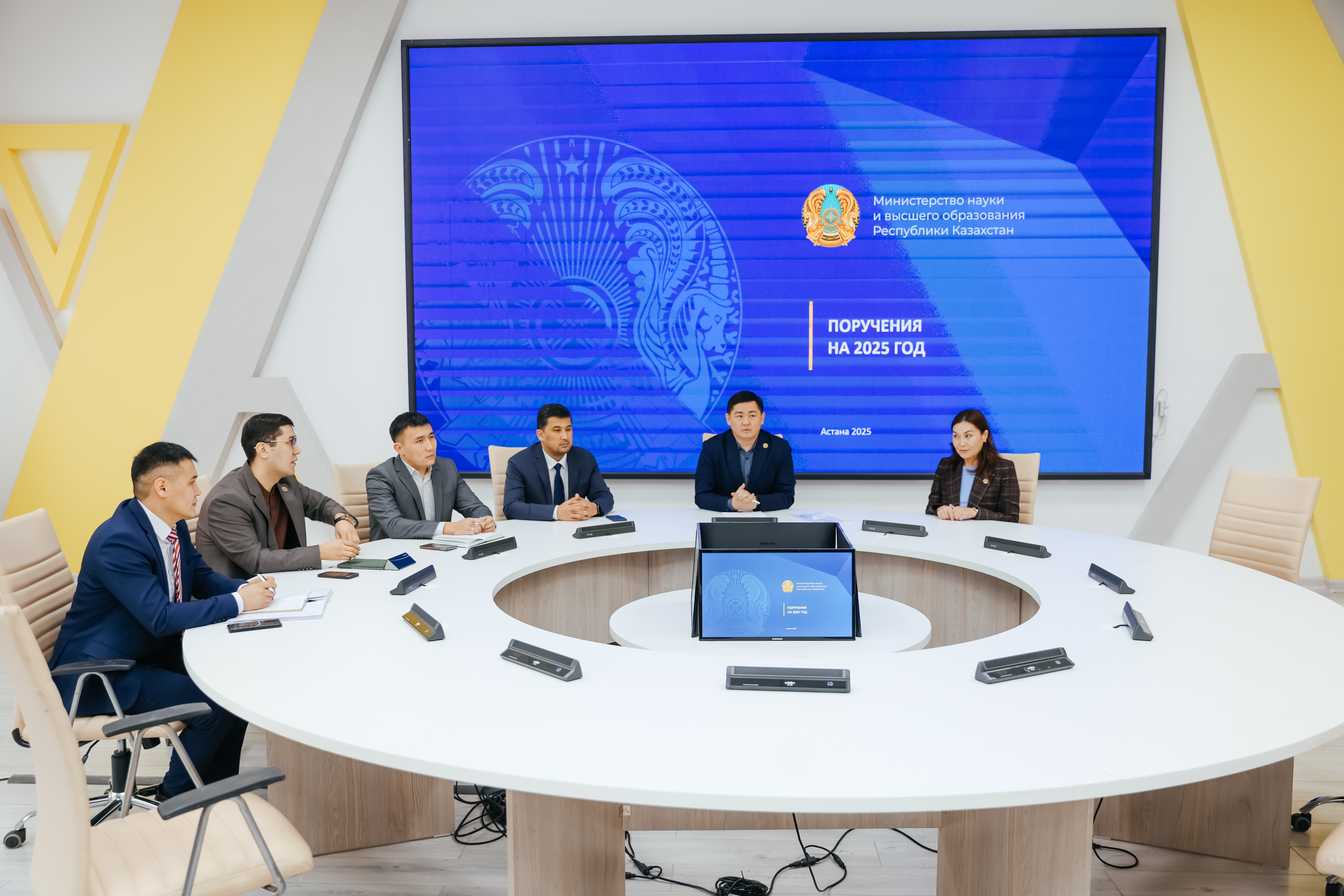The rector of Shakarim University, Duman Orynbekov, presented the university’s vice-rectors, heads of structural divisions, and faculty members with key points from the speech of the Minister of Science and Higher Education of the Republic of Kazakhstan, Sayasat Nurbek, delivered at the extended board meeting of the ministry on February 7. In his address, the minister covered crucial areas of the ministry’s activities, such as improving the quality of education, developing science and innovation, supporting young scientists, collaborating with industries in workforce training, and providing student housing. The rector also outlined the tasks assigned to universities for 2025.
During the meeting, the rector emphasized the need to update training programs in line with labor market changes, adapt educational programs to high-demand specialties, develop a new financing model, and secure stable positions in international rankings. He also highlighted the importance of advancing scientific research by integrating research projects and scientific developments into the market environment, establishing an endowment fund, and incorporating the unique AI – Sana program into the curriculum to foster AI skills among students.
These tasks represent significant steps toward enhancing the competitiveness of Shakarim University and strengthening Kazakhstan’s education system at an international level.
Additionally, a meeting was held between faculty members from six Higher Schools and three Research Schools and the rector in an open dialogue format on the topic "A Comfortable Educational Environment: A Dialogue with the Rector."
During the discussion, faculty members from all Higher and Research Schools freely exchanged opinions, shared their experiences, and put forward suggestions for improving the university’s academic and research processes. The participants addressed issues related to the development of the educational environment, improving the quality of scientific research, enhancing student engagement, and tackling social challenges.
Faculty members expressed their views on the initiatives and issues raised by the rector and proposed practical solutions. This dialogue became an important step in defining the university’s strategic direction and improving the effectiveness of the educational process. It was emphasized that the opinions and suggestions voiced would have a significant impact on the future development of the university.

